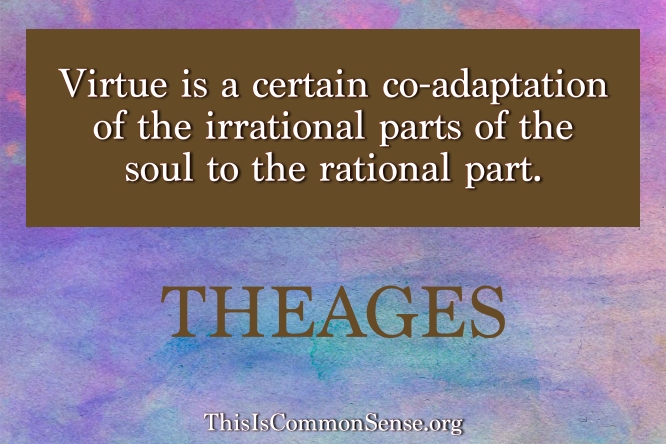Universally therefore, virtue is a certain co-adaptation of the irrational parts of the soul to the rational part. Virtue however, is produced through pleasure and pain receiving the boundary of that which is fit. For true virtue is nothing else than the habit of that which is fit. But the fit, or the decorous, is that which ought to be; and the unfit, or indecorous, is that which ought not to be. Of the indecorous however, there are two species, viz. excess and defect. And excess indeed, is more than is fit; but defect is less than is fit. But since the fit is that which ought to be, it is both a summit and a middle. It is a summit indeed, because it neither requires ablation, nor addition; but it is a middle, because it subsists between excess and defect.
Theages, Treatise on the Virtues, found in Iamblichus, Iamblichus’ ‘Life of Pythagoras,’ or ‘Pythagoric Life’ / Accompanied by Fragments of the Ethical Writings of certain Pythagoreans in the Doric dialect; and a collection of Pythagoric Sentences from Stobaeus and others, which are omitted by Gale in his ‘Opuscula Mythologica,’ and have not been noticed by any editor (Thomas Taylor, translator, 1818).
Categories
Theages
